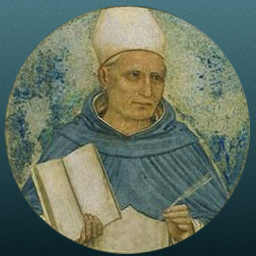Monday 14 March 2016
Christopher Dawson and the history of the West
An interesting long read from The Imaginative Conservative here:
As one sits in the pews of many Christian churches today, he has his attention called to world-historical issues: to the “new” historical moment of the nuclear arms race; to the movements for social justice in the Third World; to the struggle to liberate men and women from structures of “patriarchal oppression;” and, in general, his attention is called to all sorts of momentous issues which are linked together by hyphens along what Kierkegaard called the “prodigious railroad” of world history. Rather than being addressed as individuals who need to cultivate the virtue of justice—as well as the other interior excellences of the soul—we are all too often invited from the pulpit to jump aboard the caboose of the train of world history lest it pass us by altogether.
The article engages the issue on two levels. First, it suggests that a characteristic of modern thought is its historical focus: unless Catholic thought engages in the same historical arena, it will lack purchase on the modern mind. Secondly, there is a reference to Christopher Dawson's analysis of western history as, roughly, having at its centre a clash between Augustine's City of Man and City of God which remains fertile precisely because it is not resolved:
Although it gave incentive to the synthetic ideal, the culture-forming energies of Christianity depended upon the Church’s ability to resist the temptation to become completely identified with, or absorbed in, the culture. Dawson maintained that the key of Western culture is the tension between Christianity and the culture which it spawned. In this regard, Dawson would probably agree with Leo Strauss’ remark that the conflict between the secular and the sacred is “the secret of the vitality of the West.” It was Augustinian theology that explained how to understand this conflict.
Finally, there is a diagnosis and cure for the ills of modernity: to the extent that modern thought tends to elide the difference between the City of Man and the City of God, it tends to replace this (fertile) tension with surrogate (and destructive) civil wars within the City of Man:
[W]e might ask whether the built-in tension represented by the Two Cities theme has been collapsed into a merely intramundane conflict—between rich and poor, between men and women, or perhaps between the so-called First and Third Worlds. A secular distortion of the Augustinian theme eliminates the transcendent nature and meaning of historical conflict and therefore makes historical development dependent upon a dialectic of continual civil wars within the body of the culture.
The claims here are clearly too large to be dealt with quickly. The claim that Catholicism in particular needs to move to a more historically based pattern of thought (and away from one based on (eg) natural law) is one I'm hugely suspicious of. Clearly, there is something to be said for historical studies, but equally there is something to be said for that sort of philosophical analysis that stands outside time and focuses simply on (timeless) ideas and reasons. Moreover, if the modern age is characterised by a focus on historical narrative, it is also arguably characterised by an historical amnesia. One symptom of this is the outpouring of fantasy literature where mediaeval and ancient themes are transmuted into a realm of pure imagination rather than the messy reality of actual history. Finally, the charge that the ill of modernity is the transference of the supernatural end of human beings to the natural realm (nicely captured in the slogan 'Don't immanentize the eschaton!') clearly has some force in a secularised world, but precisely what that force is is much more difficult to say. (A quick response might be that the sort of conservative thought attracted to such a charge is itself a secularised neutering of the prophetic and apocalyptic vision of the Kingdom of God.)
And what are the implications for Catholic social teaching? First, I think it's important that such social teaching is not seen simply as a pre-formed package of practical instructions but as a genuinely philosophical and theological grappling with human social nature. There is simply no way of avoiding the sort of deep issues that this article brings up. Secondly, the Catholic covert Dawson is a figure well worth getting to grips with in this area. Finally, it is worth considering the direct charge made in the first paragraph quoted above: that too much Christian discourse in this area is dominated by secularised distortions of the supernatural human end, the transference of heaven to heaven on earth. Or is this charge itself merely a secularised ruse to blunt the prophetic force of the Gospel and to ensure that the City of Man is left untroubled by inconvenient questions of justice and liberation?
[Details of image: photo of Christopher Dawson from The Imaginative Conservative article here.]
Subscribe to:
Post Comments (Atom)


No comments:
Post a Comment